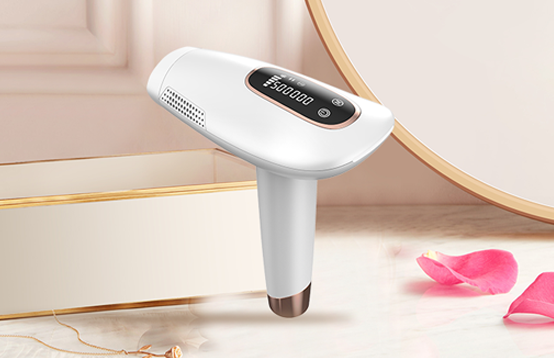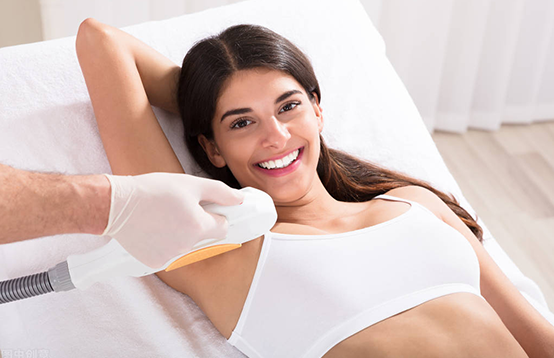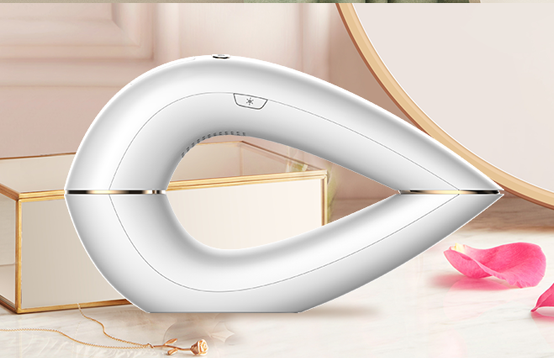Preparation before and after home ipl hair removal
Since the home IPL hair removal device is the best choice for hair removal in appearance and use. So what are we going to prepare before and after hair removal?
IPL, which stands for Intense Pulsed Light, is another form of hair removal very similar to laser hair removal. The principle for both treatments is the same and is based on using targeted light energy which is absorbed by the hair follicles, damaging them, so that it eventually prevents hair regrowth. IPL therapy, however, does not use lasers. It instead uses a broad spectrum of light wavelengths that cannot be focussed like a laser can.
IPL does not penetrate the skin as deep as lasers can, which may result in more heating of the surrounding skin. By being less focussed, IPL takes longer to affect hair growth. However, it is a cheaper alternative.

How To Prepare For Treatments
Plan Ahead
If you have been taking any antibiotic treatments, delay your laser hair removal session until two weeks after you take your final dose.
You May Shave
Unlike when you have waxing or threading, you do not need to have surface hair for the laser treatment to work. In fact, shaving within 12 hours before your laser treatment is recommended as it will prevent the hair from being singed on the surface by the laser.
Do Not Wax Or Thread
However, it is important also to not wax or thread the area in the month running up to your laser removal as this will disrupt the stage of natural hair growth and therefore significantly reduce how effective the laser treatment is.
Clean The Skin
Make sure that there are no cosmetics, deodorants, creams or other beauty products on the skin. Make sure that in the weeks running up to your treatment that your skin is sufficiently moisturized though.
Wear Loose-Fitting Clothes
You want to choose items of clothing to enable you to expose the treatment area comfortably and easily. You will also want to minimise any irritation to the area after the session, so skinny jeans aren’t a good idea if you are having your bikini line or legs lasered.
Protect Your Skin
Ensure that you are using sun protection liberally in the weeks running up to and after your treatment, even when you are just stuck in the office. Do not use sunbeds or even use fake tan, and stay out in direct sun in the weeks running up to and after your laser hair removal. This will dry out your skin, and make you more prone to burning. Tanned skin will also mean that the laser hair removal is less effective as darker skin will absorb more of the energy from the laser.

Aftercare
Once Again, Do Not Wax
By waxing or threading after your treatment, you may disrupt the follicle and impede the damage that the laser has done to the follicle. This could mean that you cause regrowth in areas that it may not otherwise begin in.
Use Sun Protection
You need to avoid direct sunlight and tanning booths for 2-4 weeks after treatment. You can apply sunblock but make sure it has a high SPF rating. Skin that has been treated will be more sensitive to the sun than normal, so use a higher SPF than you usually would.
Avoid Hot Baths And Showers
For at least 48 hours after your treatment, avoid showering or bathing in hot water as this can irritate the skin. Similarly, don’t use the gym or saunas at this time.
Avoid Use Of Makeup and Deodorants
If you have had your underarms or face treated, avoid using deodorants and makeup. Mineral-based products may be used if absolutely necessary but if irritation develops, remove it and moisturize with vitamin E to soothe the skin.

Do Not Scratch
It is normal for the skin to feel a bit itchy, but do not scratch it as the skin will be more delicate and more likely to scar if it is broken.
Exfoliate
After any redness has subsided, you can gently exfoliate the area. However, it is important not to do this too soon. Usually, you will need to wait at least 1-2 weeks following treatment.
Space Treatments Out
To give the skin a chance to recover, make sure that you leave between 4 and 12 weeks in between laser hair removal session, unless your instruction manual recommends otherwise. Remember though that over-treating your skin can damage it.

 EN
EN  ES
ES PT
PT SV
SV DE
DE TR
TR FR
FR


